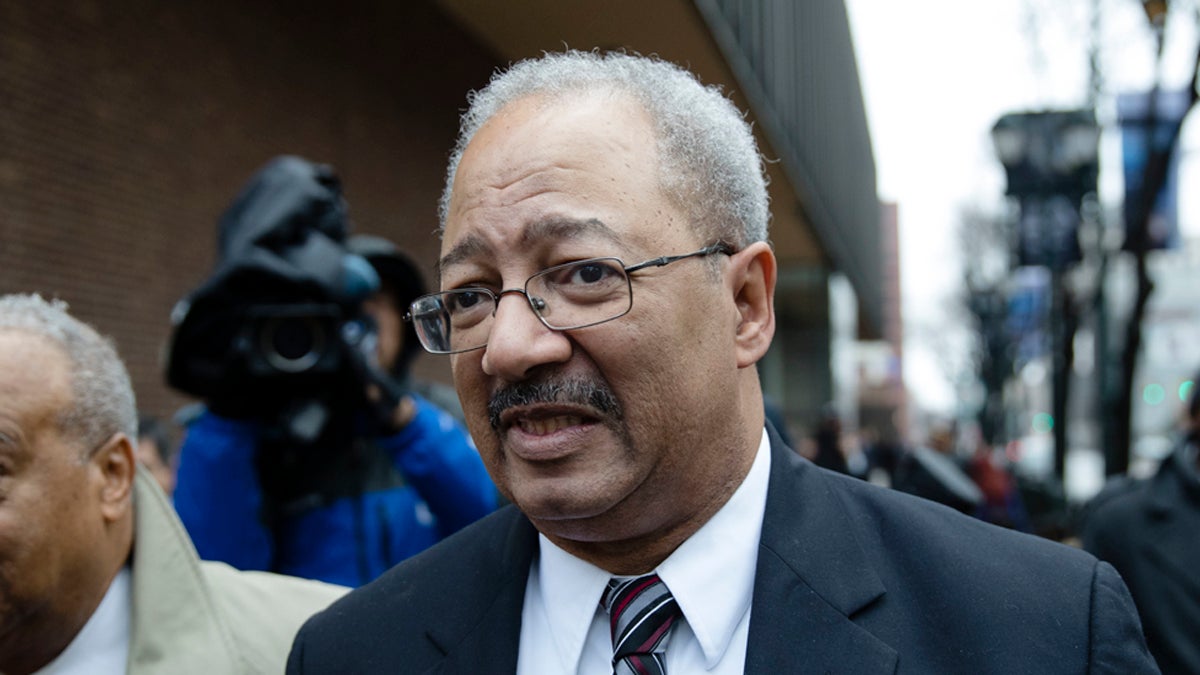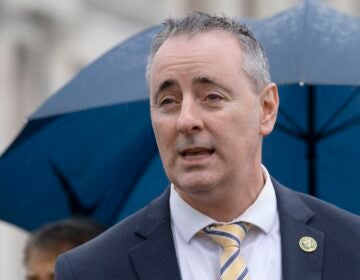Judge rules Fattah must report to prison during appeal

Former U.S. Rep. Chaka Fattah
A federal judge has denied former U.S. Rep. Chaka Fattah’s request to stay out of jail while his lawyers appeal his public corruption conviction. The Philadelphia Democrat is scheduled to start his 10-year prison sentence on Jan. 25.
In a 10-page memo filed Tuesday, U.S. District Judge Harvey Bartle III acknowledged that Fattah wasn’t a flight risk or trying to delay his sentence. Instead, Bartle said, he denied release pending appeal because the “evidence against Fattah and his co-defendants was so overwhelming,” especially when it came to the 60-year-old’s conviction of accepting bribes from a friend who wanted to become a U.S. ambassador.
“No rational jury, in our view, could have found otherwise,” wrote Bartle.
Fattah was found guilty of accepting nearly $30,000 from former Philadelphia Deputy Mayor Herbert Vederman. In one instance, Vederman, one of Fattah’s four co-defendants, provided $18,000 for a vacation home in the Poconos.
In exchange, Fattah lobbied Pennsylvania U.S. Sen. Bob Casey and members of the Obama administration with letters extoling Vederman’s resume. Fattah also gave Vederman’s girlfriend a job in his district office.
In a motion filed last week, Fattah’s lawyers argued that Fattah should stay a free man because a recent U.S. Supreme Court ruling regarding political bribery could, on appeal, not only overturn Fattah’s bribery convictions, but all of them.
“Give the centrality of the alleged bribery schemes to the government’s overall theory of the case against Congressman Fattah and the government’s presentation of these schemes as the core part of the alleged [racketeering] conspiracy at the heart of the defendants’ alleged wrongdoing, the flaws in the bribery-related charges affected all of the charges against Congressman Fattah,” wrote defense attorney Bruce Merenstein.
Six days after a jury convicted Fattah on 22 counts of corruption, the U.S. Supreme Court overturned the bribery conviction of former Virginia Gov. Robert McDonnell.
In his ruling, Chief Justice John G. Roberts Jr. clarified and narrowed the legal definition of an “official act.” He said “setting up a meeting, calling another public official, or hosting an event does not, standing alone, qualify as an ‘official act.'”
On Tuesday, Bartle rejected Merenstein’s argument, writing that at “least 13 counts have nothing whatsoever to do with the bribery-related offenses or honest services wire fraud.”
A jury also said that Fattah orchestrated the theft of hundreds of thousands of taxpayer dollars and charitable donations to help repay part of an illegal $1 million loan made to his failed bid for Philadelphia mayor in 2007.
The panel also found that Fattah used campaign cash to help his son pay off some college loans and pushed for the creation of a fake environmental nonprofit so he could settle up with a political consultant.
WHYY is your source for fact-based, in-depth journalism and information. As a nonprofit organization, we rely on financial support from readers like you. Please give today.





